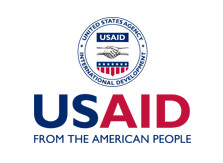Success Story
Communities Adopt Simple Solutions to Fight Childhood Illnesses in Lagos, Kano and Nasarawa States
Residents of Majidun, a semi-rural community situated on the bank of a river in Ikorodu Local Government Area in Lagos State, are predominantly fish farmers and petty traders who subsist on meager incomes. Poverty is severe in Majidun, like in most of Nigeria's rural areas, with women in particular struggling to cope with the burden of work at home and in the fields. Access to health and education services is limited or non-existent and about half the population lacks access to safe drinking water. The lack of potable water leaves the river as the common destination for various chores including washing, cooking, bathing and even drinking. This creates an environment for illnesses like diarrhea to thrive, with children being the worst hit.
Diarrhea is one of the leading causes of child death in developing countries. At least 15 percent of Nigerian children die before reaching their fifth birthday due to preventable illnesses such as diarrhea. Caused by bacteria, infection is spread through contaminated food or drinking-water, or from person to person as a result of poor hygiene. The condition leads to fluid loss and may be life-threatening, especially in malnourished young children. To effectively fight diarrhea, interventions should be double-pronged. According to COMPASS State Child Survival Program Coordinator Dr. Joseph Monehin, “Well-nourished children are able to fight common illnesses better.”
But impoverished parents are often unable to provide healthy diets for their children. “This conception is changing”, said Monehin. Working with communities in Lagos, Kano and Nasarawa States, the USAID-funded Community Participation for Action in the Social Sector (COMPASS) project is showing parents how to adopt low-cost diets made from locally-grown food that could lead to high levels of nutrition. The results have been tremendous. In a 2007 pilot intervention assessment in Marina community in Lagos State, 42% of 130 under-malnourished children graduated to a state of good nutrition following a 10-day feeding period with locally-available balanced meals.
|
“At least 15 percent of Nigerian children die before reaching their fifth birthday due to preventable illnesses such as diarrhea." |
Additionally, COMPASS promotes the use of a simple salt and sugar solution called Oral Rehydration Therapy (ORT) for the management of childhood diarrhea. Decades after the solution was introduced in Nigeria, most mothers still do not know about it. To promote ORT, COMPASS developed and distributed a family booklet that provides simple steps on how mothers can manage common childhood illnesses like malaria and diarrhea, as well as information on how to improve reproductive health, child health, and basic education outcomes in Nigerian communities. The booklet, “A Guide to Making Life Better in Our Community”, came in handy for a mother of three, Mrs. Caroline Omonokhua, when her youngest child suddenly became ill in the night with diarrhea and vomiting. The diarrhea symptoms stopped just a few minutes after giving ORT.
To increase access to this basic remedy, COMPASS established ORT corners in 37 health facilities in Lagos, Kano and Nasarawa States. These corners have helped save the lives of several children. According to a recent incident in Lagos, six-month-old Pascal Bamidele had been having diarrhea and refusing to eat for three days despite his concerned mother's effort to treat him with anti-diarrhea drugs. Expectedly, the boy was severely dehydrated and weak when he was rushed to the Majidun-Ogolonto primary health care. According to Mrs. Bamidele, “I was scared when the child's stooling did not stop. I had even used several medications before bringing him to the hospital not knowing that this salt sugar solution could actually make him recover.”
The results are evident as diarrhea cases are now treated appropriately at project-supported health facilities in Lagos, Kano and Nasarawa States. In Lagos, an increase of 53% (11,678 cases) was recorded in the number of diarrhea cases treated as compared to 5,492 cases between October and December 2005. In all three states, 294,173 diarrhea cases had been treated as of June 2008. The project also provides illustrated charts and brochures for service providers to facilitate discussions with mothers on how to manage diarrhea at home.
“Though poverty rates are still high, we can work around its barriers with simple solutions”, said Monehin.
|
